Being an office administrator is challenging and requires you to juggle multiple responsibilities. In this job, you’ll be responsible for managing operational tasks and assisting other team members. Keep this resume example on hand to help you create your own. It will provide detailed information on what should be included in your resume and tips for creating one. Read on to learn more about what it takes to succeed in this field and how to stand out when applying for a job. This document may not be necessary for everyone. Still, if you’re looking to work in a specific industry or find a job that deals with administration, it’s something you’ll want to keep handy. An administrator’s resume will highlight your skills and abilities so employers know why they should hire you.
Office Administrator Resume Example

Download This Office Administrator Resume as PDF
Receptionist Resume Example
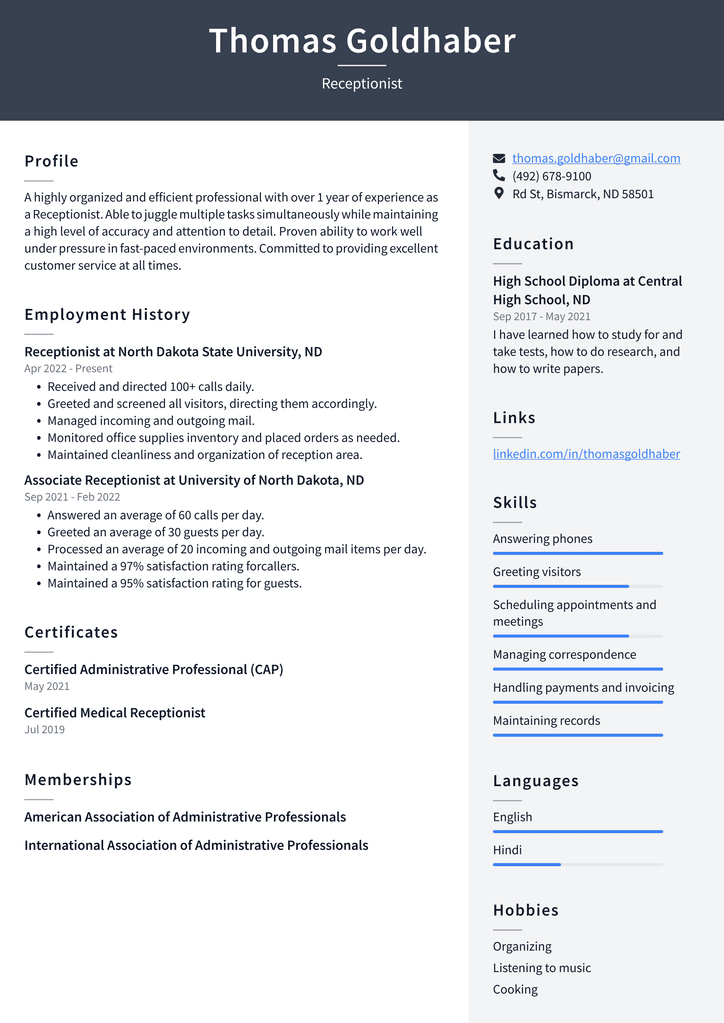
Download This Receptionist Resume as PDF
Office Clerk Resume Example
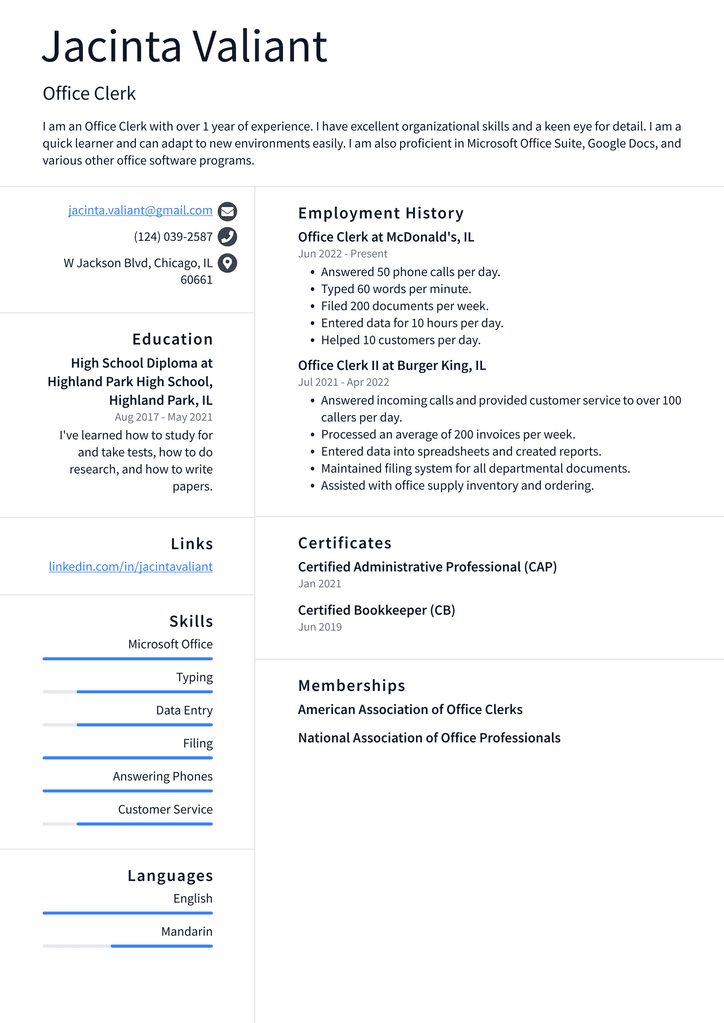
Download This Office Clerk Resume as PDF
Executive Assistant Resume Example
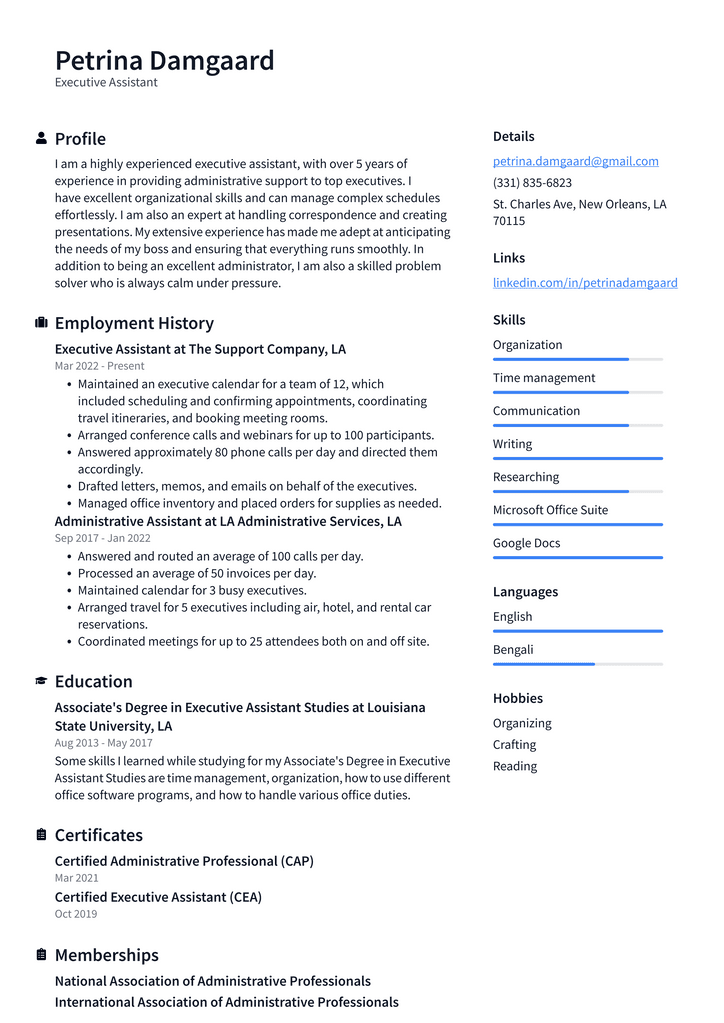
Download This Executive Assistant Resume as PDF
Administrative Assistant Resume Example
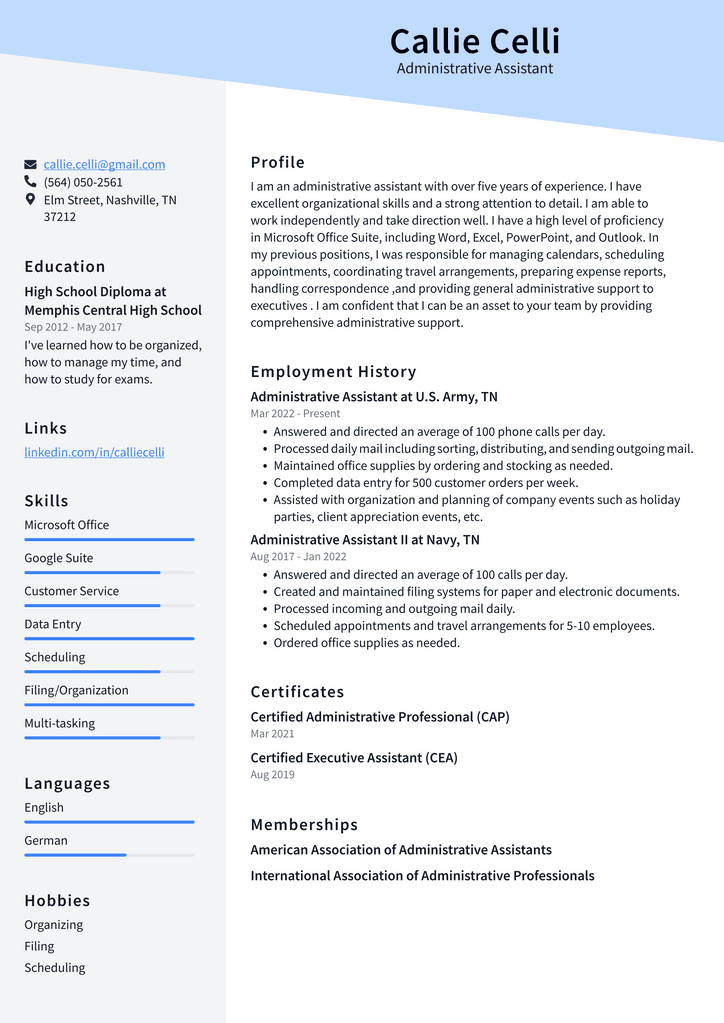
Download This Administrative Assistant Resume as PDF
Office Coordinator Resume Example
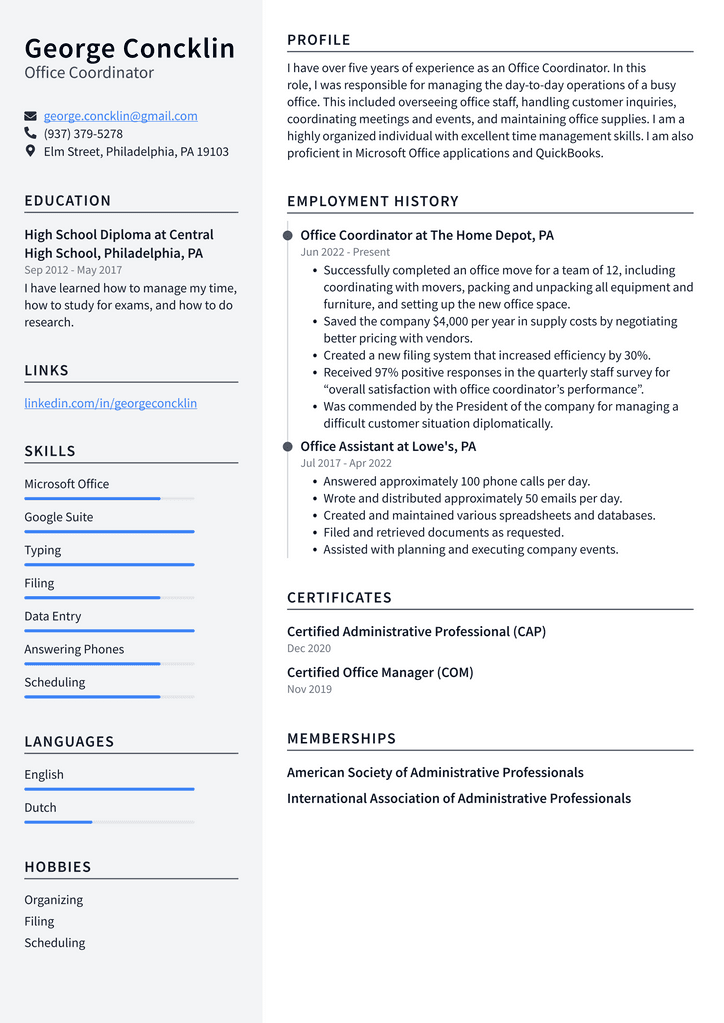
Download This Office Coordinator Resume as PDF
Facilities Manager Resume Example
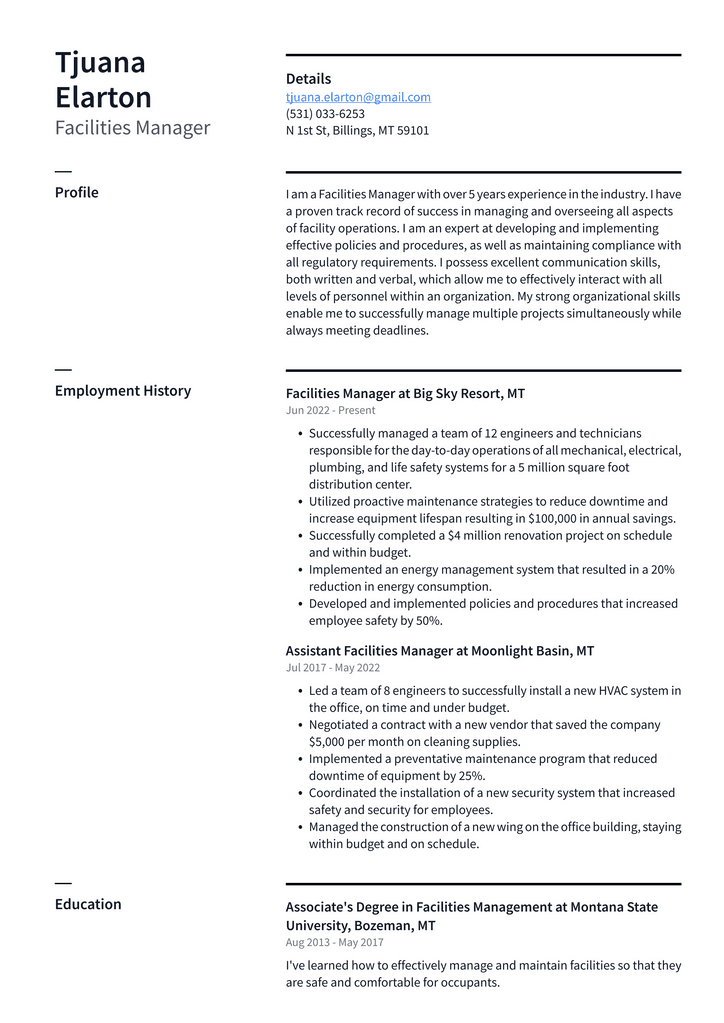
Download This Facilities Manager Resume as PDF
What is an Office Administrator?
An office administrator manages a business’s administrative operations, including planning, managing, and overseeing administrative tasks. Office administrators are responsible for the efficient day-to-day operations of an office. While their roles may vary, they typically tend to reception, IT, finance, human resources, and other departments. In addition, you may be responsible for training employees and scheduling meetings as an office administrator. If a company with multiple locations employs you, you may even be responsible for managing the flow of information between offices. This job is an excellent fit for those who prefer to be busy and enjoy multi-tasking. An office administrator performs various functions associated with office management, including personnel management, budgeting, and record keeping. Employers include state and federal government agencies, health care providers, educational institutions, and private businesses. This position requires strong interpersonal skills, the ability to meet deadlines, and knowledge of office procedures and systems.
Duties of an Office Administrator
- Managing Staff: As an office administrator, you will likely have some direct reports. Depending on your company, you may be responsible for hiring and managing other administrative staff.
- Scheduling Meetings: You may also have some input into meeting schedules. You’ll usually help to schedule meetings and know whom to invite. When scheduling meetings, you’ll likely have a calendar at your disposal. It’s essential to keep an eye on the calendar to ensure no scheduling conflicts.
- Overseeing Operational Tasks: You’re also likely to oversee operational tasks such as managing the supply chain and ordering goods and services. You may also oversee administrative functions, such as record keeping and budgeting.
- Providing Administrative Support: You may also be responsible for providing administrative support to other teams or departments. This could include assisting with travel arrangements and managing calendars. Again, your role is likely to vary depending on the organization you work for.
Tips for Creating an Office Administrator Resume
As an administrative professional, your resume should focus on your experience and skills as they relate to the job you’re applying for. If you’re transitioning between industries or want to apply for a job in a different field, creating a new resume from scratch may be helpful. However, if you’re applying for a job in your current field, you can use your current resume as a template. Your resume should contain the same information as a standard resume, with a few tweaks here and there. Here are some tips to help you create a winning resume: – Use a clean and modern design – Always use a modern and clean design for your resume. Make sure your plan is tailored to the job you’re applying for. – Include keywords and phrases – Include keywords and phrases that are commonly found in job postings. This will help to hire managers quickly identify qualified candidates. – Leave off your address – While your address is helpful for logistics, it’s not essential to your resume.
Keywords to Help You Land the Job
If you’re targeting a specific job, you may want to research keywords and phrases related to that position. You can use those exact keywords and phrases on your resume to help you stand out from the crowd. You can use a general resume template, for example, if you’re applying for administrative roles with many different companies. Some keywords are almost always relevant no matter what industry or company you’re applying for. These include – Administrative: This is a general term that can apply to many different positions. Make sure you use it in your resume, cover letter, and any other materials you’re submitting. – Microsoft Office: Employers want to see that you have experience with the most commonly used software. – Data Entry: Employers want to know you can enter data into spreadsheets or databases. – Customer Service: A little customer service experience on your resume can go a long way.
Conclusion
An office administrator job description covers a wide range of responsibilities. If you’re interested in this position, make sure your resume highlights the skills listed above. If you write your resume with these tips, you’ll have a better chance of landing the job you want.